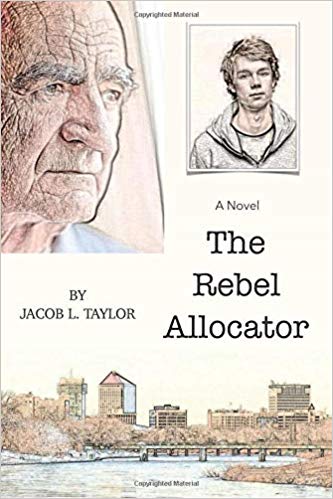In this week’s Five Good Questions, we’re interviewing James Clear about his book Atomic Habits.
James is an author, entrepreneur, and photographer. He writes about habits and human potential on his website JamesClear.com. His focus is self-improvement that is supported by scientific research. James’s work ends up being one-part storytelling, one-part academic research, one-part personal experimentation.
Q3 hedge fund letters, conference, scoops etc
Five Good Questions:
- What makes being thoughtful about our habits so important?
- What are a few best practices for good habit hygiene?
- What habit would you guess is a commonality among great investors? Or maybe, we should invert and ask what are the bad habits of investing? I’m imagining checking stock prices too often has to be up there?
- Is there a dark side to habits? Is it possible that too much structure can sap away spontaneity, joie de vivre, and being present?
- What’s the one bad habit that’s been hardest for you to personally break?
And make sure you pick up your copy of the Rebel Allocator, available now on Amazon in both digital and physical formats!
Fiver Good Questions: James Clear - Atomic Habits
Transcript
Welcome back to show everybody. My guest today is James Clear author of Atomic Habits. James thanks for taking time to be with us. Hey you bet. Thanks for having me on. So I've been looking for this one for quite a while mostly because we know each other reasonably well and we actually make quite a while ago a number of years ago in a conference and a mutual friend of ours introduced us and he told me after.
I don't think I've ever told you this before but he told me after me. Keep your eye on that guy he's going to be big someday. And I told him I was like yeah I could see that. And it turns out that that was he was underselling the case. So congrats on all of your success.
Oh thanks man. Well that's yeah that's nice. That's a fun story to hear.
So your book Atomic Habits is doing quite well. New York Times best seller list top of Amazon. But I think maybe what's most important is that something we are talking a little bit before we started was that is actually helping people. And that that your work is actually making a difference. And so I don't know if you do want to share just a little bit before we get into the questions about why that's making a big deal for you personally.
Yeah I mean you know like like everyone I want my work to matter you know I want my work to be useful and make a difference and so it's great for me to hear that one thing that's interesting about writing specially writing online is that you share these ideas so if I published an article on my site or put a book out. But it's kind of a one to many communication and it's sort of one directional like I'm putting it out but I often don't hear back from the people who who are reading. And so it's just really nice you know a big event like a book launch or something is a chance for you to hear from a lot of those people whether it's speaking at an event or people emailing you about the launcher you know oh I just finished the book and here's my thought. And so it just feels good to hear about the idea of landing with folks and a lot of the time. It's something simple like people using it in their daily life for workout habits or things like that. But then other times it's bigger stuff. You know it's like a company uses an idea from a chapter as their slogan for the next quarter or I heard from a doctor who printed out some of the articles and put them on the waiting room wall for his patients to read or there was an investment firm that. Recently brought me in to speak and they they found about out about my stuff because a couple of the CFOs in this group that they're part of print and all the articles out and passed them around all the other ones and like you know I don't get to hear about that stuff right. I don't see it. Just as Kouta to learn about how your work is spreading and it's stories like that even though none no individual one is super sexy it just is neat to think like oh you know these ideas are out there being used daily. You know like people are people are actually sitting in a meeting and talking about it more sharing with you know some other athletes and their coach or a client. You know that they're working with or something like that. And so I think ultimately that's the most important thing because you know I mean why else why else would I write. You know like I'm just writing to try to add my little bit to human knowledge. And you know and hopefully share something that people can apply in their daily lives so it feels good.
Yeah. So specifically about the book first. Question number one is what makes being thoughtful about our habits so important.
So I think about the process of improvement as kind of being like circular. And so at first what you need is some kind of awareness that you use the phrase being thoughtful but basically like once you become aware of a problem or aware of a certain type of behavior that you perform now you actually have the chance to design it. You know like your behavior could change without you being aware of it. That happens all the time you know maybe someone will shift the way that you know the cafeteria is laid out and so people buy different foods because of that or something like that. But even though your behavior is changing in those circumstances you're not in control. So if you want to be in control of the process you almost always have to be aware of your behavior first. So you become aware of it then the next stage of the circle or the cycle is you practice the change you want a mix of some kind of like deliberate practice or a little bit effortful you're concentrating and then with increased fluency or with increased repetition you develop fluency and skill and eventually that thing that was effortful starts to become more automatic and habitual. But then once it's habitual you kind of close the loop and we're back to because you can do it on autopilot you no longer pay attention. And so now you need to raise your thoughtfulness raise your level of awareness again become aware of where you're at currently and then try to start the process again. So I often like to recommend that people use what I call a habit scorecard as a good starting point.













